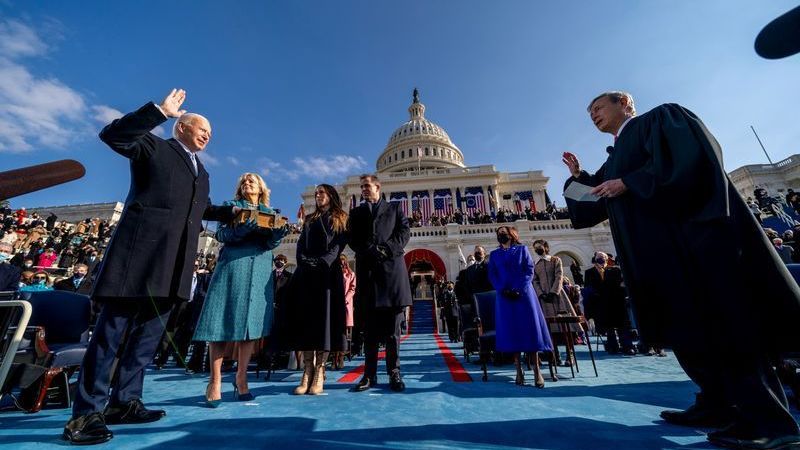As U.S. National Tax Department Leader at Ernst & Young, Michael Mundaca has an insider’s perspective on the path ahead for tax agenda being put forth by the new administration of President Joseph Biden, even as that agenda is buffeted by a divided Senate, the COVID-19 pandemic, and an economic downturn.
At EY, Mundaca advises clients on how to advocate for sound tax policies and best meet their tax obligations. Prior to re-joining the firm in 2011, he served as the Assistant Secretary for Tax Policy at the U.S. Treasury Department, where he headed the Office of Tax Policy under Treasury Secretary Tim Geithner.
Mundaca also has experience that is particularly relevant today, having served in the Office of Tax Policy during two presidential transitions — from Clinton to Bush, and from Bush to Obama.
Mundaca spoke with Melissa Oaks, Senior Manager at Thomson Reuters, to discuss the prospects for Biden’s tax proposals — and how corporate taxpayers can prepare. Some of Mundaca’s key highlights included:
Leadership appointments — The Georgia Senate runoff election gave Democrats’ effective control of the chamber by the slimmest of margins: a 50-50 split with Vice President Kamala Harris wielding the tie-breaking vote. The most immediate impact of the Democrats’ edge is likely to be easier, faster approval of presidential appointments that require Senate confirmation, Mundaca says, adding that this includes the appointment of the Assistant Secretary for Tax Policy and the IRS Chief Counsel.

Legislative agenda — There also is increased potential to pass more of Biden’s legislative agenda. For example, it’s likely that Congress will enact more of Biden’s taxation and spending proposals, although Democrats’ advantage is tenuous, he adds. Senate rules essentially require 60 votes to pass legislation, and while there are mechanisms for changing or circumventing that requirement — including budget reconciliation — even then, every Democratic senator and possibly some Republicans, would need to be on board. As a result, the Administration may need to focus on initiatives that have bipartisan support, such as tax incentives for infrastructure investment and domestic manufacturing, especially with respect to critical health and national security needs.
Tax proposals — During the campaign, Biden proposed to increase the corporate income tax rate to 28%, from its current rate of 21% and return the top individual tax rate to 39.6%. For individuals, he also proposed increasing estate and payroll taxes and lowering the capital gains tax rate for households earning more than $1 million per year.
With respect to corporations, Biden proposed:
-
-
- increasing certain overseas income of U.S. multinationals;
- levying a 15% minimum tax on booked income more than $100 million;
- charging a fee on financial firms with assets greater than $50 billion; and
- ending fossil fuel subsidies.
-
“These proposals were not made in a vacuum and were not made to lower the deficit,” Mundaca says. “They were made to fund significant spending priorities, and there is talk that the Biden Administration may try to move quickly on those spending plans. It remains to be seen if the tax increase proposals will be part of those spending packages.”
You can hear the full podcast with EY’s Michael Mundaca on the Tax & Tech Talks podcast here.
Many of those tax proposals would be difficult to get through the Senate, however, so it’s important to evaluate what tax legislation may have bipartisan support. This might include combining Republican priorities for altering the Tax Cuts and Jobs Act of 2017 with Democratic priorities such as expanding low-income credits and multi-employer pension relief.
Pandemic relief — “When Congress passed the latest stimulus package (in December), I think most had the expectation they would be back working on another package in the new year,” Mundaca explains. “That is what Joe Biden has called for and what the Democrats in the House would support.”
Companies navigating the change
Mundaca also listed a few steps to help corporate tax departments navigate the volatility:
-
-
- Do your homework — Research the proposals and model their effects on your company.
- Plan — Consult with advisers regarding how to prioritize and determine what’s coming around the corner. “Not all proposals have an equal chance of moving ahead, and some may not move ahead quickly, if at all,” he says.
- Tell your story — “One thing that surprises many corporate taxpayers is how open the Treasury, the IRS, and Congressional staff are to listening to taxpayer concerns,” Mundaca explains. “The most effective lobbying I’ve seen is based on specific taxpayer facts that focus on how tax rules may have negative impacts on business operations and business decisions.” And lobbying need not be limited to legislative proposals, he says, adding that the Treasury and the IRS are very open to hearing comments on pending regulatory projects. “It may surprise people to know that all submitted written comments are reviewed carefully and that most requests for in-person meetings to discuss comments are granted.”
-







